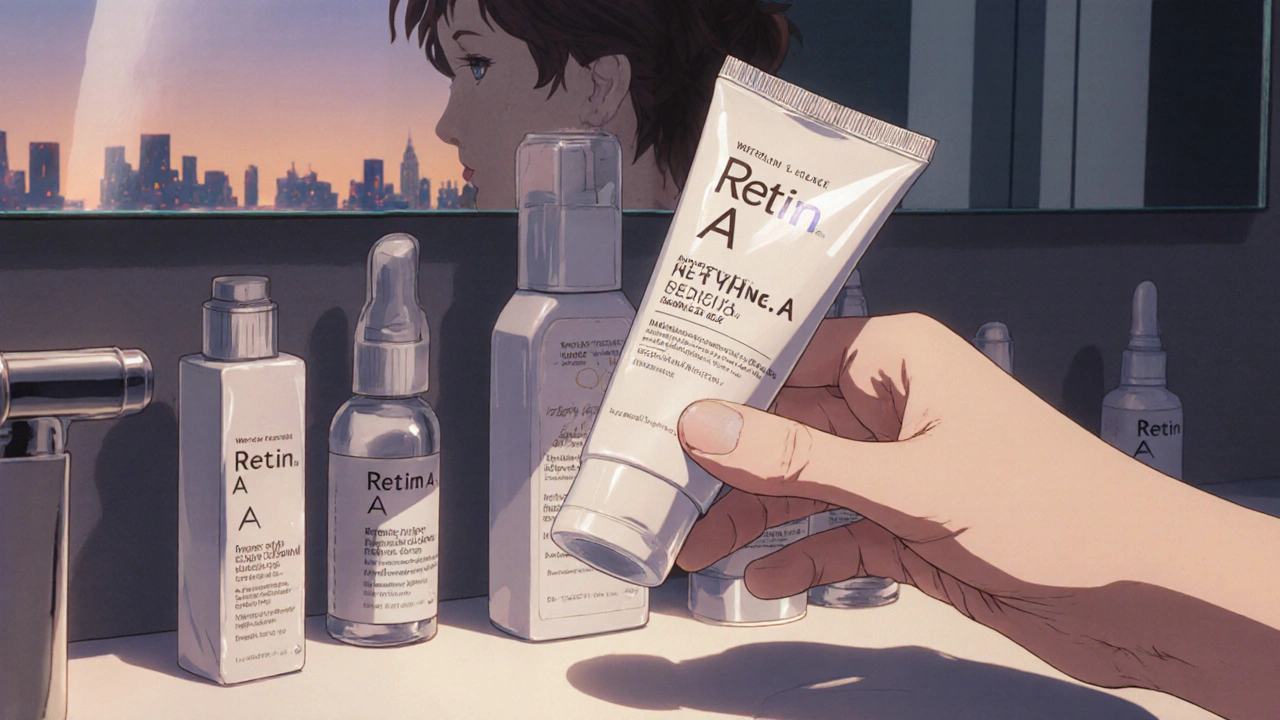Skin Care Retinoids: Your Complete Guide
When talking about skin care retinoids, vitamin A‑derived compounds that speed up skin cell turnover and boost collagen. Also known as retinoids, they are a cornerstone in both acne therapy and anti‑aging routines. Isotretinoin, the most powerful oral retinoid used for severe cystic acne exemplifies how potent these agents can be, while Tretinoin, a topical form often prescribed for fine lines and hyperpigmentation shows the gentler side of the family. Adapalene, an over‑the‑counter gel that targets clogged pores with fewer side effects rounds out the trio, giving everyday users a safer entry point. These three entities together illustrate the core idea that skin care retinoids encompass both prescription‑strength and OTC options, each suited to different skin concerns.
Why Retinoids Matter: Benefits, Risks, and Practical Tips
Retinoids influence skin health by binding to nuclear receptors, which then regulate gene expression for cell growth and collagen synthesis. This means they can reduce acne lesions, fade dark spots, and smooth wrinkles – a triple win for many people. However, the powerful mechanism also brings potential downsides: dryness, redness, and increased sensitivity to sunlight. Acne, an inflammatory condition of the pilosebaceous unit often drives the decision to start a retinoid regimen, while the desire for youthful skin pushes others toward topical forms. A key semantic link is that retinoids require dermatologist supervision when used at high doses, especially isotretinoin, which demands regular blood tests to monitor liver function and lipid levels. For beginners, starting with a low concentration of adapalene or tretinoin, applying it every other night, and using a robust sunscreen can mitigate irritation. The relationship between sun protection, broad‑spectrum SPF 30+ daily and retinoid therapy is critical: without it, the skin’s heightened photosensitivity can lead to burn‑like reactions.
Below you’ll find a curated collection of articles that dive deeper into each of these topics. Whether you’re curious about the latest research on isotretinoin safety, want a side‑by‑side comparison of tretinoin versus newer retinoids, or need practical advice on managing side effects, the posts provide clear, evidence‑based guidance. Use this resource to match the right retinoid to your skin goals, understand the science behind their action, and learn how to integrate them safely into your daily routine.

Retin A 0.025 (Tretinoin) vs Common Alternatives: A Detailed Comparison
A detailed guide comparing Retin A 0.025 (tretinoin) with top alternatives like adapalene, tazarotene, azelaic acid, and retinol, covering benefits, risks, costs, and how to choose the best option for your skin.
Continue Reading



